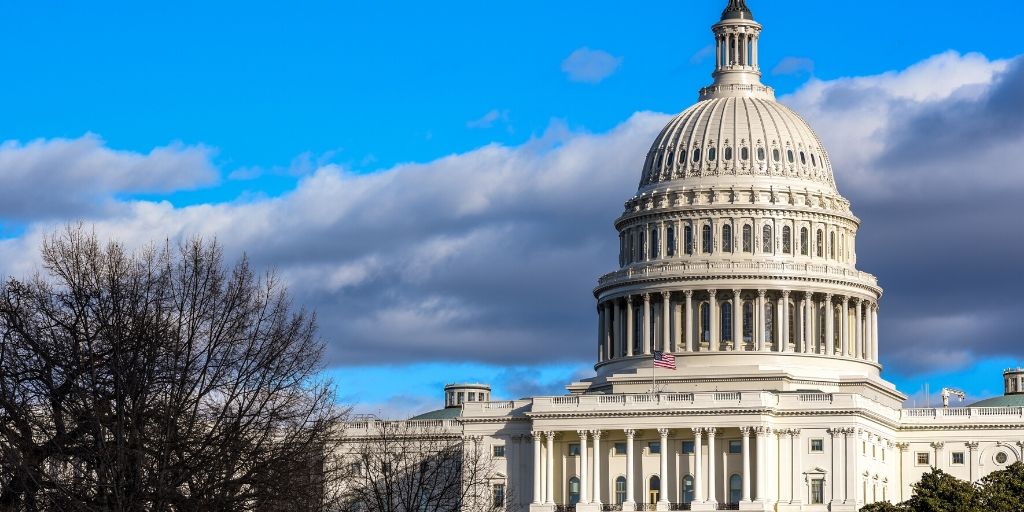
How Will The New Government Affect Your Personal Finances?
Each new presidential administration comes in with grand plans to change policies, better the nation, and ultimately do what they think is best for the American people. Wherever you fall on the political spectrum, a new presidential administration will likely have at least some impact on your personal finances, which can cause a lot of fear and worry for many people.
President Joe Biden’s campaign centered largely around rebuilding the middle class, but what does that mean, really? Although no one can predict the future, here are 3 ways we think the Biden administration might impact the personal finances of many American families.
COVID-19 Stimulus
President Biden has made it clear that he is in favor of more stimulus relief to help soften the economic blows of the COVID-19 pandemic. Just recently, Congress passed the $1.9 trillion American Rescue Plan Act of 2021, (1) which provides housing assistance to both renters and homeowners, extends key unemployment insurance programs through August, and provides funding for a third stimulus check for up to $1,400 per individual under certain income limits.
Although President Biden hasn’t yet signed the bill, it is widely anticipated that he will do so. Of course, the passing of this bill could include direct financial benefits for you if you fall under the income threshold to receive a stimulus payment.
But this bill carries a hefty price tag, which could risk a spike in inflation, increase the already record-breaking national debt, and push up borrowing costs for consumers and businesses. (2) Without speculating too much, these fallout effects may have an eventual impact on costs of living and even possible increases in taxes.
Student Loans
President Biden continues to advocate for student loan forgiveness in the hopes of rebuilding middle-class borrowers, pushing for Congress to forgive $10,000 in student loans for all borrowers regardless of income level. If you carry student loan debt, this loan forgiveness could help to free up more of your income to pay off other debts, save for big-ticket purchases, increase your emergency savings, or put more money back into your local economy.
But student loan forgiveness doesn’t mean student loan lenders will simply go away. The government will take responsibility for each borrower’s $10,000, resulting in a cost of $377 billion. (3) This money will have to come from somewhere, with the three obvious main sources being taxes from individuals, taxes from businesses, or increasing the deficit.
One thing to keep in mind in regards to student loan forgiveness for your immediate financial situation is your own taxes. If you have $10,000 forgiven in student loan debt, it’s not guaranteed that you won’t have to pay income tax on that $10,000. For example, if you’re in the 20% federal tax bracket, you could potentially pay an additional $2,000 in taxes that year if the government decides to consider that forgiveness as “income.”
Taxes
Speaking of taxes, some Americans are worried the Biden administration will increase their taxes. Again, we can’t predict the future and we don’t claim to. But what we do know is that President Biden maintains he only wants to increase taxes on the wealthiest of Americans.
Now, if you’re a wealthy American making $400,000 a year or more, this may not be reassuring. After all, you’ve worked hard for your money and deserve to keep as much of it as you can. For now, President Biden may have a tough time raising taxes on the wealthy with the Senate so evenly split.
However, one tax to keep an eye on is capital gains tax. If your income exceeds $1,000,000, you may face a substantial increase in capital gains taxes, up to 40%. This increase would be unprecedented and, because of that, may still be unlikely. Given what we know about the President’s plans and values, understanding these future possibilities can help you strategize for different scenarios.
How We Help
The truth is, we’re in control of how we vote, but we’re not in control of government decisions once all is said and done. The best we can do is focus on what we can control and develop strategies to deal with whatever comes our way. To optimize opportunities that are truly best for your situation, you need a wealth advisor on your side.
If the new administration’s plans end up negatively affecting your personal finances, the team at FMF&E Wealth Management can help you take advantage of tax-favored investing, strategize charitable contributions, properly structure tax-loss harvesting, and so much more to keep you on the right track for financial security. To get started, schedule a conversation today or reach out to me at jcampbell@fmfewealthmgt.com.
About Jeff
Jeff Campbell is a Wealth Advisor with FMF&E Wealth Management, a financial planning firm committed to providing services and advice that puts you, your family, and your values and goals first. With 25 years of experience in the financial industry, Jeff is passionate about building relationships with his clients, coaching them to make solid financial decisions and guiding them as they work toward the financial future of their dreams. He is known for being a good listener and providing clarity and confidence as he helps business owners secure their retirement and live their best life. Jeff has a bachelor’s degree in Economics from the University of Richmond. When he’s not working, Jeff loves spending time with his wife, Caitlin, his two children, Paige and Colin, and his extended family. He enjoys golfing, traveling, playing the guitar, and seeing live music. To learn more about Jeff, connect with him on LinkedIn.
_________________
(1) https://docs.house.gov/billsthisweek/20210222/BILLS-117hrPIH-american-rescue-planRH.pdf





